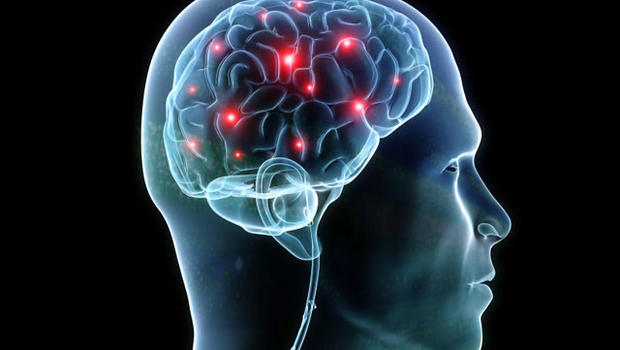
You know the incredible effects you can see physically with the right diet and exercise combo for you, but what about a protocol for keeping your brain in top shape?
Turns out there are specific exercises and foods you can use to improve concentration, increase brain matter, and even stave off memory loss and degenerative disease like Alzheimer’s. Here are a few of the most recommended lifestyle moves you can make to get some real brain gain.
Cardio Brain: If you’re looking to bulk up your brain, cardio is going to give that brain muscle the training it needs.
In a recent study in the Journal of Physiology, researchers measured the brain impact of three different types of exercise – sustained aerobic activity, high intensity interval training, and weight training – on male rats. Specifically they looked at adult hippocampal neurogenesis (AHN), or new brain cell growth in the hippocampus, an important area for memory and learning.
RELATED: Which Type of Exercise Is Best for the Brain?
Over a seven-week period, some rats ran leisurely on running wheels. The high intensity interval training (HIIT) rats ran on treadmills at a strenuous speed for 3 minutes and a slower rate for 2 minutes, repeated twice, for 15 minutes of running per day. The weight resistance rats had tiny weights tied to their tails and then climbed up small walls.
At the end of the observation period, the rats who ran leisurely on the treadmills had the best results, while researchers noticed only a slight difference in the brain with high-intensity interval training and no difference with resistance training.
“Our results confirm that sustained aerobic exercise is key in improving AHN,” researchers pointed out in their summary.
So in the pursuit of a bigger, healthier brain, steady cardio appears to be the key. While HIIT and resistance have other health benefits, they don’t appear to be as beneficial for the brain.
Superbrain Yoga. Said to “energize and recharge the brain,” this technique is used by teachers, occupational therapists and medical doctors to boost concentration and memory, and even bolster grades. Using a combined movement of squatting while applying pressure to the ear lobes, it’s essentially a combination of acupressure and deep breathing. Alzheimer’s patients, kids in classrooms, and older people looking to stop memory loss have all boasted of its benefits. And it also only takes about three minutes a day to practice.


